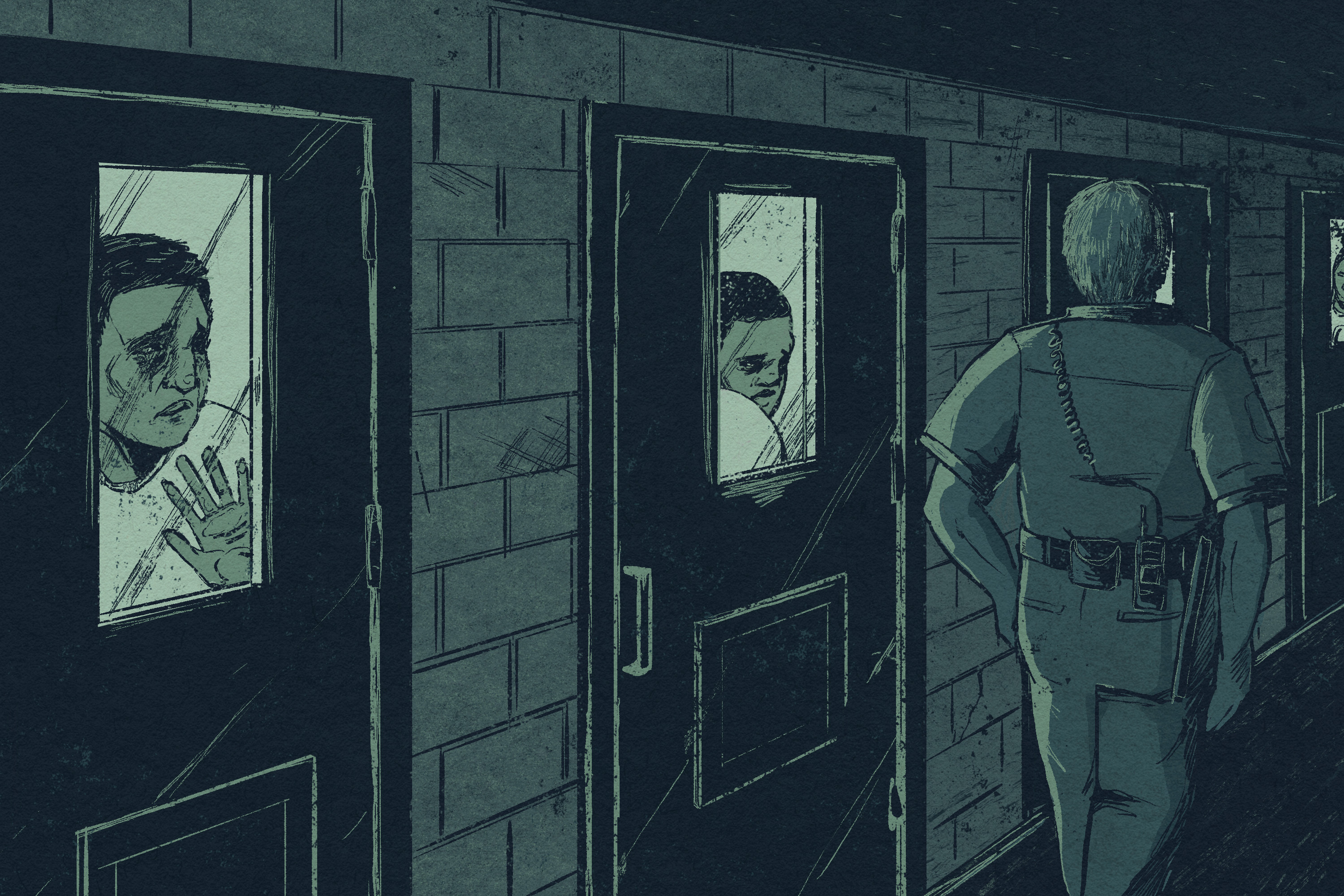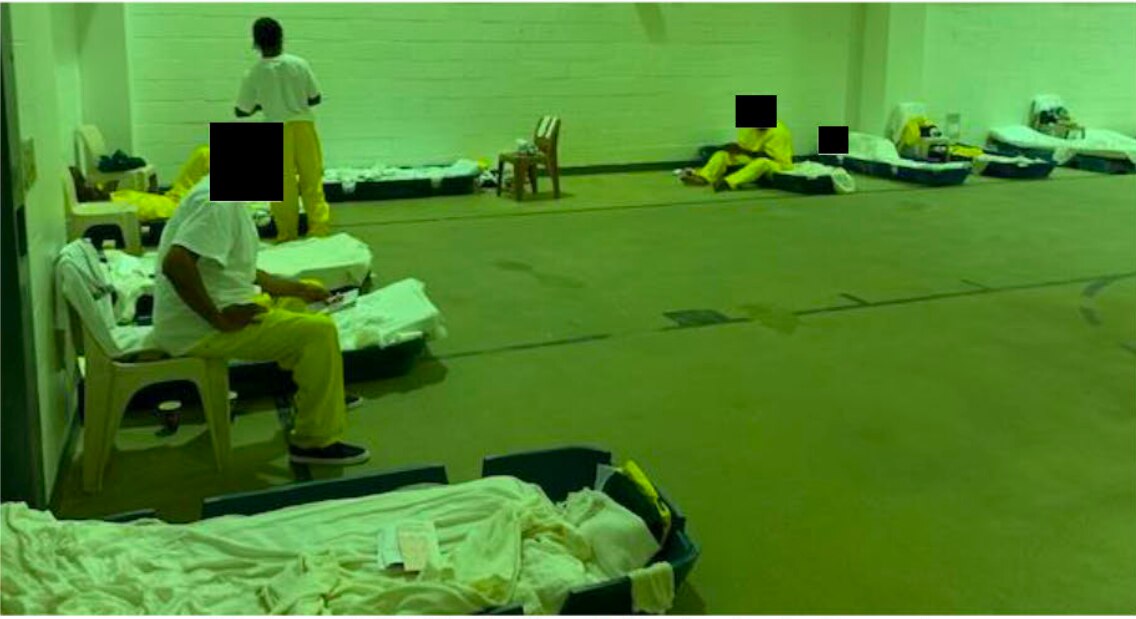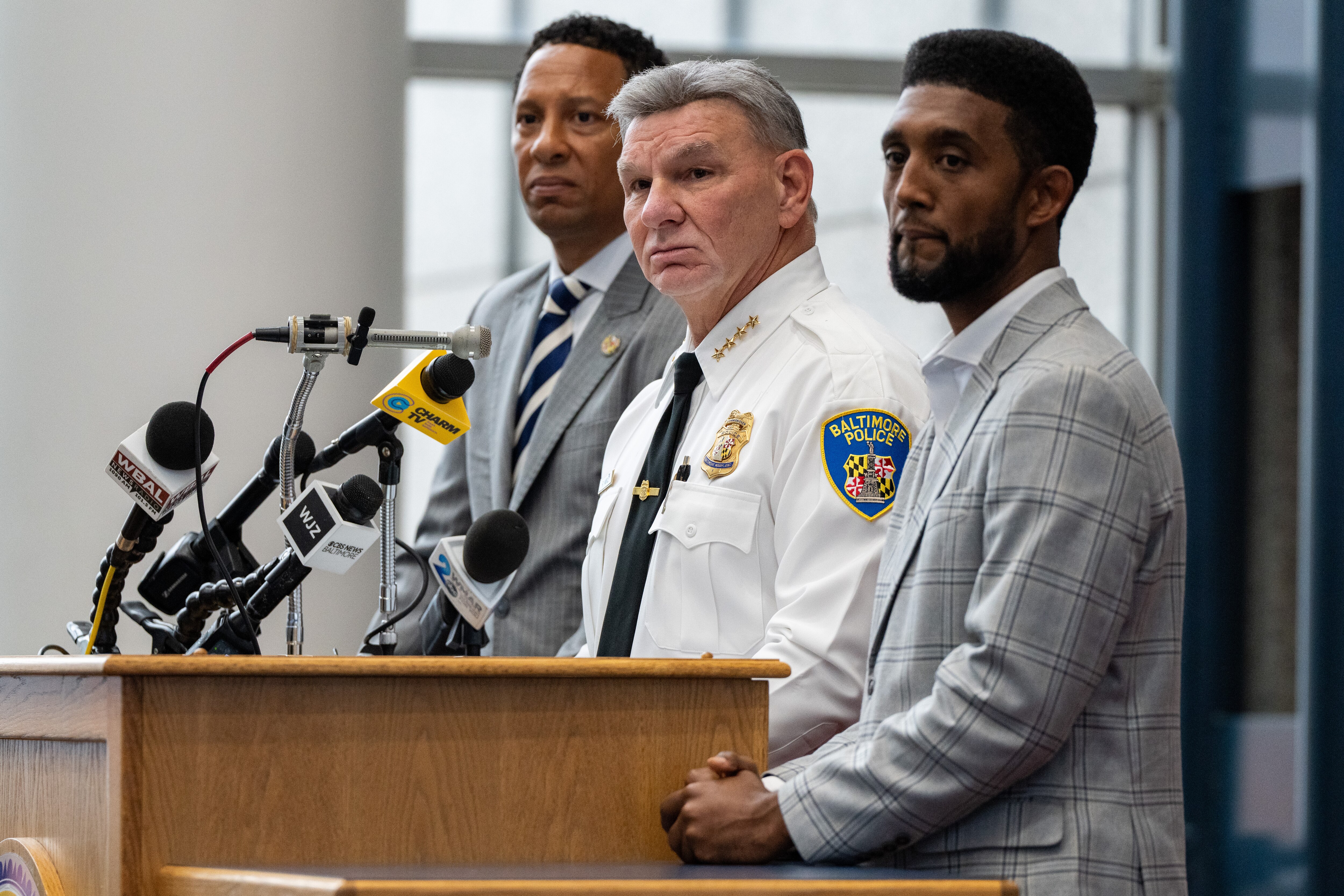CURRENT EDITION: baltimore (none)🔄 Loading BlueConic...EDITION HISTORY: No changes tracked
🔵 BlueConic: ___🔗 Query: ___✏️ Composer: ___
Baltimore’s new $1 billion jail will be most expensive state-funded project in history
The proposed 854-bed facility will be a hybrid jail, hospital and mental health and substance use treatment facility for people facing criminal charges.
Her son is in a coma after a severe prison beating. Now, she’s fighting for change.
Maryland’s corrections department says Dominetreous Anthony was assaulted by two prisoners. His mother believes there is more to the story.
Maryland to extend contract with troubled prison health provider — again
Maryland is proposing to spend nearly $125 million to continue having YesCare provide medical care to the 20,000 people in state-run jails and prisons through the end of the year.
Maryland’s prison health care provider could be in big trouble
A proposed settlement in a Texas bankruptcy case with ties to the Maryland prison system is in critical condition.
Baltimore had big plans for helping incarcerated people. They’re not panning out
A city program funded by federal pandemic aid is running far behind its stated goals, even after expectations were tamped down
2 officers, 200 prisoners: Maryland’s prison population grows amid staffing shortage
The staffing crisis in Maryland prisons dates back to 2015. But it’s is getting worse.
Are Maryland prisons out of bounds with federal requirements for trans prisoners?
The Maryland Department of Correctional Services says transgender prisoners are “housed according to physical genitalia.” Advocates say that’s illegal.
Maryland psychiatric hospital CEO on leave, accused of threatening staff
A restraining order was issued against the top official at Clifton T. Perkins Hospital Center.
System failure: How a man killed himself on suicide watch in the Harford County jail
The Harford County Sheriff’s Office says it has changed medical providers since a spate of suicides in its detention center.
Why is the suicide rate so high at this Maryland jail?
A Baltimore Banner investigation revealed disturbing patterns and policy failures underlying a series of deaths by hanging at the detention center
The Baltimore Police Department just cleared its first hurdle in exiting federal oversight
A court filing shows that the U.S. Department of Justice agrees that BPD is now fully compliant on two sections of its consent decree with the federal government.
Police are investigating ‘potentially exploded devices’ near government building
The devices were found in the 1500 block of Guilford Avenue, which is home to an apartment building and the local Baltimore office of the Maryland Department of Human Services, a social services agency. It’s unclear where exactly the devices were located.
Man charged with second-degree murder in shooting of woman overnight on Jones Falls Expressway
The two had been in a 'verbal altercation,' police said.
Shake-up in Baltimore jail health care lawsuit: Medical monitor resigns, new judge at helm
The medical monitor resigned 10 days after the state of Maryland made a lengthy argument against his findings.
Maryland waited until the last minute to seek alternatives to its troubled prison health care provider
A deadline is looming at the end of the year for Maryland to decide whether to keep or replace the troubled, for-profit company that provides medical care in state prisons and the Baltimore City jail complex.
Probable cause? Baltimore Police are making fewer improper arrests, monitoring team finds
The rate of improper arrests dropped from 10.4% to 4% in two random samplings of 200 cases in 2019 and 2021.
A corrections ombudsman? Support building for bill that could reshape the Maryland prison system
Lawmakers are reintroducing legislation, and the attorney general is backing the proposal.
Judge will ‘mull over’ escalating dispute over the doctor monitoring Baltimore jails
Private attorneys working for the state of Maryland aimed their fire at the independent medical monitor overseeing a 2016 settlement agreement on health care delivery in the state-run city jail system.
He was owed $770K for botched treatment of a wrist fracture in jail. Then a bankruptcy got in the way.
Earlier this year, a correctional health care company declared bankruptcy. Now, a formerly incarcerated Marylander is missing out on compensation he won in a trial.
Civilian reviews of BPD investigations are back. Work ‘needs to be done,’ says one member
The administrative charging committee has flagged issues with missing video footage, incomplete reports and policy discrepancies.















